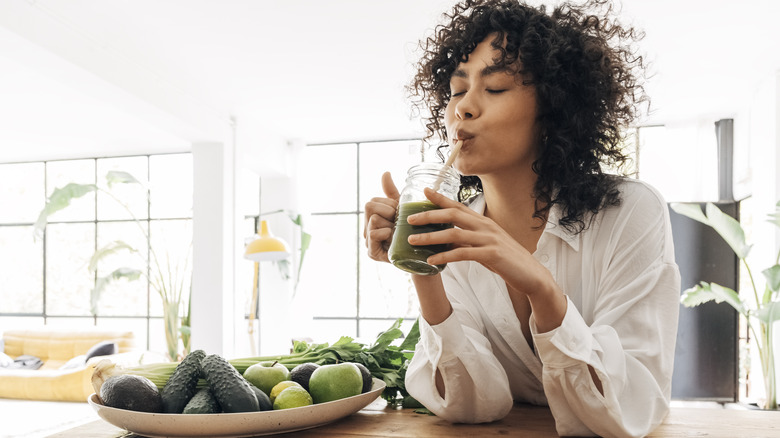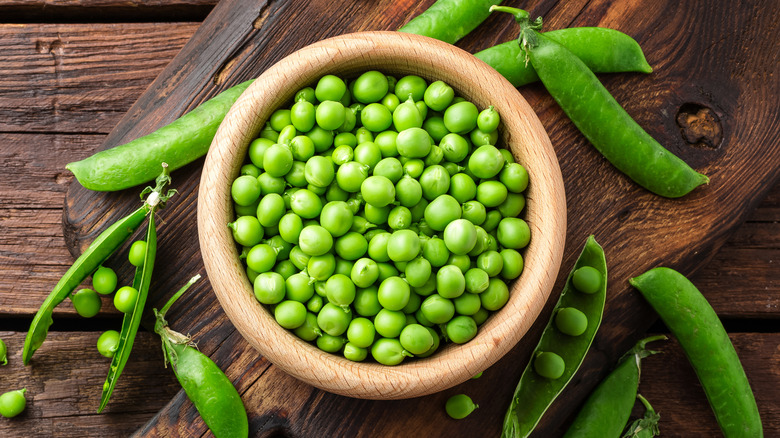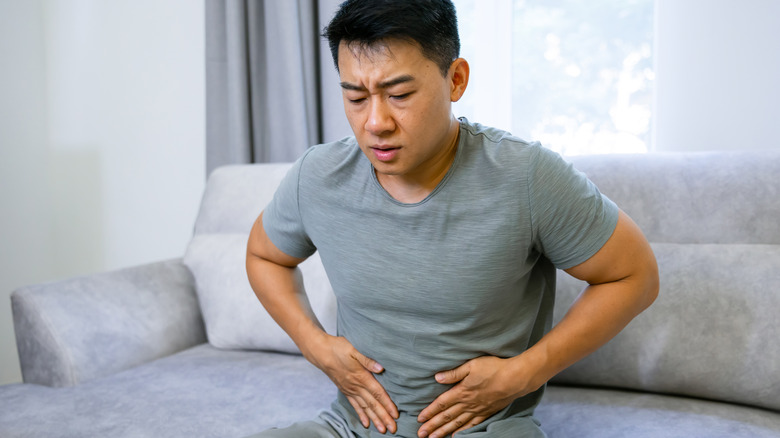The Green Protein That Can Help You Poop Instantly
When we say protein, odds are that you're probably thinking about beef, chicken, or other animal sources of protein, none of which are green. So what does that leave us with? Green eggs and ham? Not quite.
Plants can be a powerhouse source of protein. For people with constipation, lobbing a spoonful of green peas onto your dinner plate will not only provide you with this essential nutrient, but may also help kick your stagnant bowels into action. In a 2021 research paper published in Nutrients, researchers note that chronic constipation (CC) is among the top five outpatient diagnoses most commonly made by gastroenterologists. Those diagnosed with the condition experience fewer than three poops a week, and over 25% of their bowel movements feel incomplete, blocked, require manual assistance, or produce lumpy or hard stool. Certain dietary changes, like upping one's fiber intake, may help alleviate symptoms and speed things up. Yet most of us are falling short of the recommended daily intake of fiber, which stands at about 25 grams for women, 38 grams for men, and roughly 19 to 25 grams for children. Here's how green peas may help.
How fiber in green peas may help you poop
According to the North Ottawa Wellness Foundation, a ½ cup of cooked green peas contains 4.4 total grams of fiber. While there are different kinds of fiber, the main two categories are soluble and insoluble fiber, both of which can be found in green peas. Harvard Health Publishing explains that both kinds of fiber can benefit our gastrointestinal tract. Soluble fiber gets converted into a gel substance as it absorbs water from our food, which slows down the body's digestion process. Meanwhile, insoluble fiber bulks up stool, and accelerates the speed at which food travels through the gut, potentially benefiting those with constipation. In a half-cup of cooked green peas, you'll find 3.2 grams of soluble fiber and 1.2 grams of insoluble fiber.
Peas, beans, and lentils are all considered legumes. If you're struggling with constipation and interested in increasing your plant-based fiber intake, Kaiser Permanente suggests slowly incorporating more fiber-rich foods into your diet. This can include a flavorful bean, lentil, or split pea soup.
Methods for relieving constipation
If you're experiencing symptoms of constipation, reach out to your healthcare provider for treatment, and to discuss any suggested dietary modifications. If increasing your fiber intake is one of them, just remember to start small. Kaiser Permanente cautions that too much fiber too fast can cause bloating, gas, or diarrhea. In addition to potentially making peas a regular staple in your diet, remember to drink plenty of liquids to further alleviate constipation. Laxatives or stool softeners may also be options. Harvard Health Publishing explains that osmotic laxatives help soften stool by drawing water into your gut, while stool softeners draw moisture into stool. People with hemorrhoids will want to avoid common poop mistakes like straining during a bowel movement, so stool softeners tend to be a good fit for these patients. In cases where poop becomes lodged in the rectum, known as fecal impaction, a physician's assistance may be required for removal.



